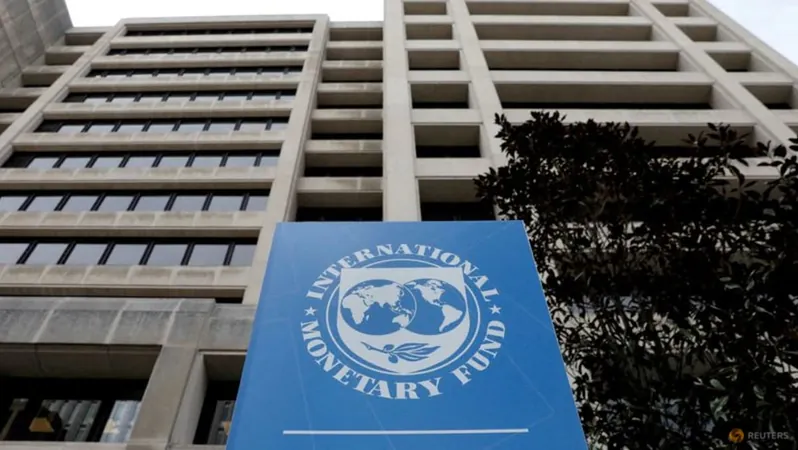
IMF Sounds Alarm: Retaliatory Tariffs Could Spell Trouble for Asia’s Economic Growth
2024-11-19
Author: Nur
The International Monetary Fund (IMF) has issued a stark warning about the potential impact of retaliatory tariffs on Asia's economic future. Speaking at a forum in Cebu, Philippines, on November 19, IMF Asia-Pacific Director Krishna Srinivasan highlighted how these “tit-for-tat” tariffs could significantly jeopardize the region's growth prospects, raise operational costs, and disrupt essential supply chains.
The IMF's concerns come against the backdrop of increasing tensions in international trade, notably fueled by President-elect Donald Trump’s controversial proposal to impose a staggering 60% tariff on Chinese imports, alongside at least a 10% duty on all other goods. Such measures could have far-reaching consequences, leading to reduced global trade and hampering growth in exporting nations, potentially even igniting inflation in the United States. This could force the US Federal Reserve to reevaluate its monetary policy strategy despite a lackluster global growth forecast.
Compounding the issue, the European Union recently decided to raise tariffs on Chinese-made electric vehicles to as high as 45.3%. This decision has already prompted a retaliatory response from Beijing, showcasing the escalating trade tensions that further complicate the economic landscape.
The IMF’s latest World Economic Outlook predicts global economic growth at a tepid 3.2% for both 2024 and 2025—a forecast that appears bleak compared to Asia’s projected growth of 4.6% in the current year and 4.4% next year, indicating the region's potential role as a critical driver of the global economy.
Srinivasan emphasized that Asia is currently undergoing a significant transition, which is generating heightened uncertainty and the “acute risk” of escalating trade disputes among major economic partners. Additionally, he warned that the unpredictability surrounding monetary policies in advanced economies could have ripple effects, influencing financial decisions across Asia, capital flows, exchange rates, and other vital financial markets.
As trade tensions continue to mount and uncertainty looms over global economic strategies, Asia's resilience may be put to the test. Stakeholders across the region must prepare for potential ripple effects, navigating a landscape where cooperation and strategic dialogue will be essential for maintaining growth in these turbulent times.




 Brasil (PT)
Brasil (PT)
 Canada (EN)
Canada (EN)
 Chile (ES)
Chile (ES)
 España (ES)
España (ES)
 France (FR)
France (FR)
 Hong Kong (EN)
Hong Kong (EN)
 Italia (IT)
Italia (IT)
 日本 (JA)
日本 (JA)
 Magyarország (HU)
Magyarország (HU)
 Norge (NO)
Norge (NO)
 Polska (PL)
Polska (PL)
 Schweiz (DE)
Schweiz (DE)
 Singapore (EN)
Singapore (EN)
 Sverige (SV)
Sverige (SV)
 Suomi (FI)
Suomi (FI)
 Türkiye (TR)
Türkiye (TR)